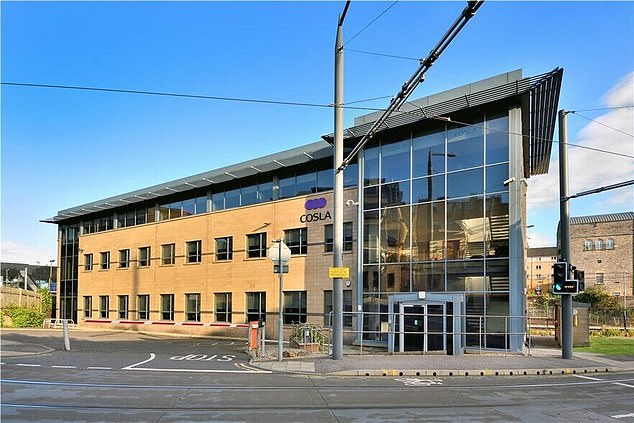Council chief executives are in line for ‘eye-watering’ average pay rises of more than £19,000 after a controversial salary review.
The 12.5 per cent increase compares to 4 per cent for frontline staff this year and comes after a stinging 9.5 per cent jump in council tax bills.
The Scottish Conservatives said hard-working families would be ‘appalled’.
Union bosses predicted a furious backlash from workers to the ‘slap in the face’, which was signed off by local political leaders on the council umbrella body Cosla.
Tory finance spokesman Craig Hoy said: ‘Scots who have been clobbered by huge hikes in their council tax bills will be appalled by the prospect of top bosses getting inflation-busting pay rises.
‘After years of suffering savage cuts from the SNP, councils should be doing everything they can to deliver value for the taxpayer and protecting vital services.
‘Rubber stamping these pay deals completely flies in the face of that.’
The pay rises for the heads of Scotland’s 32 local authority, first reported by the Daily Record, follow an expert review comparing their wages to other public officials UK-wide.

Cosla, the national association for Scotland’s councils, has endorsed chief executives’ pay hikes

Oliver Reid is the chief executive of Orkney Council
With the last review in 2001, Cosla said an update was needed as the workload had ‘changed significantly in terms of increased complexity, scale, and level of risk’.
But the group delayed endorsing the report’s recommendations earlier this year to avoid complicating salary negotiations with local government staff.
Workers went on to agree a 4 per cent rise this year and 3.5 per cent in 2026/27.
Cosla has now endorsed the chief executive raises, which will be phased in over 12 months.
A leaked paper said the plan is for revised salaries of between £165,755 and £230,620 based on council size.
The expert review puts the total cost at £611,113 for an average salary rise of £19,097.
Individual bosses would see rises of between £4,380 and £32,334, or 2 to 23.4 per cent more, with an average rise of 12.5 per cent .
The already well-paid chief executives of the biggest councils are set to get the least, with the lowest award going to Glasgow City Council boss Susanne Millar.
But the heads of the small and island authorities – Oliver Reid at Orkney, Maggie Sandison at Shetland, Malcolm Burr at Eilean Siar and Nikki Bridle at Clackmannanshire – appear in line for rises of around £30,000 each.
STUC general secretary Roz Foyer said: ‘Cosla’s decision to award top bosses above inflation pay rises is deeply flawed and will quite rightly create a huge backlash from workers and the public they serve.
‘Staff and service users across the country are facing cuts to services, continued low pay and increasing cost of living pressures.
‘It is simply rubbing salt into the wounds of ordinary workers who yet again can see that when it comes to pay it’s one rule for the bosses and another rule for everyone else.’
GMB senior organiser Keir Greenaway said: ‘Pay rises of this size for those at the very top are a slap in the face to our members after being repeatedly told budgets are stretched to breaking point.’
And Graham McNab, lead local government officer at Unite, told the Record: ‘It’s disgraceful that Cosla willingly offer eye-watering pay rises to council chief executives who are already on exorbitant salaries.
‘How can they even begin to justify paying chief executives three times higher than what they gave nursery nurses, cleaners, school assistants and refuse workers?
‘It’s utterly hypocritical and our members won’t forget this when pay negotiations start again.’
A Cosla spokeswoman said: ‘On 31st October, Cosla leaders considered an independent report on chief executive remuneration.
‘It was agreed that an updated pay framework will be implemented based on the independent recommendations.
‘The new pay framework will help local government attract and retain the leadership we require to deliver for Scotland’s people and our communities, and meet the challenges we face now and into the future.’